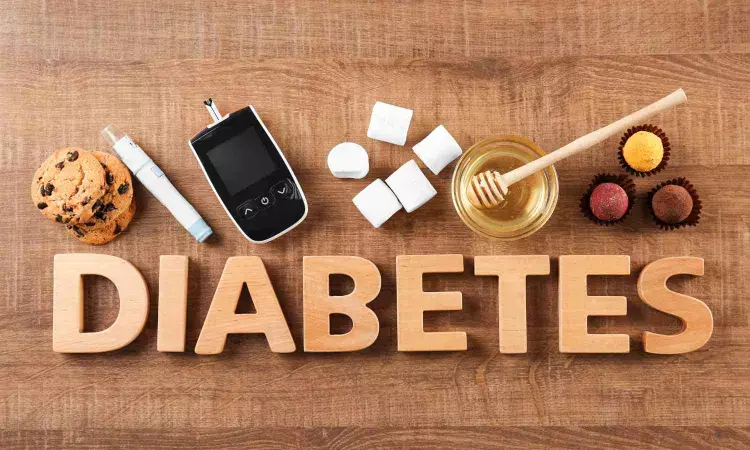- Home
- Medical news & Guidelines
- Anesthesiology
- Cardiology and CTVS
- Critical Care
- Dentistry
- Dermatology
- Diabetes and Endocrinology
- ENT
- Gastroenterology
- Medicine
- Nephrology
- Neurology
- Obstretics-Gynaecology
- Oncology
- Ophthalmology
- Orthopaedics
- Pediatrics-Neonatology
- Psychiatry
- Pulmonology
- Radiology
- Surgery
- Urology
- Laboratory Medicine
- Diet
- Nursing
- Paramedical
- Physiotherapy
- Health news
- Fact Check
- Bone Health Fact Check
- Brain Health Fact Check
- Cancer Related Fact Check
- Child Care Fact Check
- Dental and oral health fact check
- Diabetes and metabolic health fact check
- Diet and Nutrition Fact Check
- Eye and ENT Care Fact Check
- Fitness fact check
- Gut health fact check
- Heart health fact check
- Kidney health fact check
- Medical education fact check
- Men's health fact check
- Respiratory fact check
- Skin and hair care fact check
- Vaccine and Immunization fact check
- Women's health fact check
- AYUSH
- State News
- Andaman and Nicobar Islands
- Andhra Pradesh
- Arunachal Pradesh
- Assam
- Bihar
- Chandigarh
- Chattisgarh
- Dadra and Nagar Haveli
- Daman and Diu
- Delhi
- Goa
- Gujarat
- Haryana
- Himachal Pradesh
- Jammu & Kashmir
- Jharkhand
- Karnataka
- Kerala
- Ladakh
- Lakshadweep
- Madhya Pradesh
- Maharashtra
- Manipur
- Meghalaya
- Mizoram
- Nagaland
- Odisha
- Puducherry
- Punjab
- Rajasthan
- Sikkim
- Tamil Nadu
- Telangana
- Tripura
- Uttar Pradesh
- Uttrakhand
- West Bengal
- Medical Education
- Industry
Smoking and High Systolic BP Identified as Modifiable Risks for T2DM, Study Says

India: An analytical cross-sectional study demonstrates cigarette smoking and systolic blood pressure (BP) as modifiable risk factors for type 2 diabetes mellitus (T2DM). the researchers suggested that implementing early screening for smoking and managing hypertension effectively in T2DM patients can help reduce associated morbidities and mortality.
The findings were published online in the Indian Journal of Community Medicine.
Diabetes Mellitus is a chronic metabolic disorder characterized by persistent hyperglycemia. It could be brought on by decreased insulin secretion, resistance to insulin's peripheral effects, or both. Insulin resistance is the term used to describe the reduced response to insulin in type 2 diabetes. To maintain glucose homeostasis during this condition, insulin is ineffective and is initially countered by an increase in insulin production. However, over time, insulin production diminishes, leading to type 2 diabetes. T2DM is most commonly seen in persons older than 45 years. Still, it is increasingly seen in children, adolescents, and younger adults due to rising levels of obesity, physical inactivity, and energy-dense diets. Smoking and elevated blood glucose in diabetics raise the risk of micro- and macrovascular problems from T2DM and speed up vascular damage.
Considering this, Yamini Marimuthu, Department of Community and Family Medicine, AIIMS, Mangalagiri, Guntur, Andhra Pradesh, India., et.al conducted a study to determine the association between cigarette smoking and T2DM.
For this purpose, the research team conducted an analytical cross-sectional study involving 434 patients of a tertiary care teaching hospital in Kolkata, West Bengal, India. The trial was conducted in November 2022 and the cases were attending weekly OPD to fulfil inclusion and exclusion criteria of the study.
The study included patients who were more than 35 years of age and the details regarding the sociodemographic, clinical status and NCD risk factors were collected using pretested semi-structured questionnaires after the approval of IEC. The data collected was analyzed by using SPSS software. The crude and adjusted odds ratio with 95% confidence was calculated and analyzed using simple logistic regression and multivariable logistic regression.
The findings revealed that:
- Out of the population, 51.6% were men, 37.3% had diabetes mellitus, and 28.6% drank alcohol.
- Age, BMI, systolic and diastolic blood pressure, and cigarette smoking were found to be substantially linked to an elevated risk of type 2 diabetes (T2DM) by univariate logistic regression analysis.
- Systolic blood pressure, age, female gender, and cigarette smoking were found to be significant risk factors for type 2 diabetes (T2DM) by multivariable logistic regression analysis.
- It was discovered that none of the research participants were eating enough fruits or vegetables. The study participants engaged in less than 150 minutes of moderate-intensity physical activity per week, indicating irregular physical activity.
“The individual will benefit from preventing smoking habits in their early years by having a lower burden of T2DM and CVD. Systolic blood pressure and cigarette smoking are the two modifiable risk factors for diabetes mellitus. The morbidities and mortality in T2DM cases will be reduced by early detection of smoking through screening and adequate management of hypertension in individuals with T2DM”, researchers concluded.
Reference
Debnath, D. J., Ray, J., Jah, S. M., & Marimuthu, Y. (2024). Smoking and the risk of type 2 diabetes: A cross-sectional analytical study. Indian Journal of Community Medicine, 49(4), 588-592. https://doi.org/10.4103/ijcm.ijcm_1009_22
Deepanshi Bhatnagar (MSc Nutrition and Dietetics) is a professional with a master's degree in Nutrition and Dietetics from MRIIRS. With a strong academic background, she is well-versed in the principles of nutrition and dietary science. At Medical Dialogues, Deepanshi serves as the correspondent for fact-checking, where she is responsible for verifying and evaluating claims related to nutrition and diet, ensuring that all content is accurate, evidence-based, and scientifically sound.
Dr Kamal Kant Kohli-MBBS, DTCD- a chest specialist with more than 30 years of practice and a flair for writing clinical articles, Dr Kamal Kant Kohli joined Medical Dialogues as a Chief Editor of Medical News. Besides writing articles, as an editor, he proofreads and verifies all the medical content published on Medical Dialogues including those coming from journals, studies,medical conferences,guidelines etc. Email: drkohli@medicaldialogues.in. Contact no. 011-43720751


